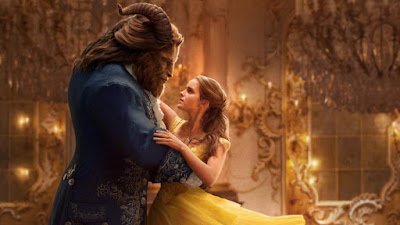A young girl, full of mischief and fire, moves through a low-rent neighborhood with an impenetrable enthusiasm. Her friends accompany with almost nonexistent parental supervision, and often find themselves caught in situations that test their safety. A motel manager, a gruff sort insistent on rules, nonetheless observes their antics from a safe distance, perhaps because he senses the inability of others to respond to the dangers that inhabit their periphery. A scene involving his intervention with an old man emphasizes that prospect; as the stranger engages with the children as they are grouped around park benches, no parent is around to detect, quite obviously, that he is a predator. Do they in some way depend on his observations, however quietly? Or are they completely ambivalent? Or worse yet, just don’t care? There lies one of the many pointed questions in Sean Baker’s remarkable “The Florida Project,” where the whimsy and enthusiasm of the young stars is cast in a shadow created by adults who are too restrained by their poverty to sense the difference between a good and bad decision (assuming they make one at all).
Wednesday, January 31, 2018
Wednesday, January 24, 2018
Three Billboards Outside Ebbing, Missouri / **** (2017)
There are three crucial exchanges in “Three Billboards Outside Ebbing, Missouri” between Mildred, a mother dealing with the murder of her daughter, and Chief Willoughby, the man overseeing the difficult pursuit of her killer. Each mounts not just the tone of their journey, but also the deep and painful element of their individual convictions – two occur after she has audaciously called him out in a rather public way for not making any arrests in the case, and another comes in the form of a letter, following a decision he has made in the wake of his terminal medical diagnosis. What each exchange suggests, beneath the impassioned disagreements and heated put-downs, is a respect sourced from the same desire to do what’s right, even in the face of relative personal limits. That would be more than sufficient in a movie that sees pathos as the only possible emotion in a story thick with tragedies, but director Martin McDonagh uses them in a dramatic curve that is equal parts gruff, shocking, devastating and humorous. By all definitions he has made a film that ought to be handled with unwavering candor. But it is within those three scenes where a more intricate foundation is discovered, in characters who know little about conventional mourning but everything about lashing out with sardonic resolve.
Wednesday, January 17, 2018
I, Tonya / ***1/2 (2017)
Tonya Harding wants people to know something they have refused to see – it’s never been her fault. No, not when she first took to the ice and treated her competitors with the same brash cruelty that her mother passed down to her on a constant basis. Not when she threw a vulgar tantrum in front of judges because they scored her low in one of her earliest skating competitions – essentially because she didn’t dress “appropriately.” And certainly not when her former friend and colleague Nancy Kerrigan was assaulted while training just a couple of months prior to the ’94 Winter Olympics, in an incident now famously known for the involvement of those closest to her circle. In whatever capacity you choose to accept the details – certain or otherwise – it’s never been a fair game to the poor misunderstood Ms. Harding. This despite her impeccable skill, her drive, her refusal to give up in the face of constant verbal and emotional abuse, and her history-making moves on ice that first captured her in the fickle public eye. No four words are uttered more frequently in “I, Tonya” than the dismissal of personal responsibility. But are they always mistaken, or is there some truth to the denial? Does she know any better? When the same phrase is repeated by nearly every important witness to her perplexing public history, it serves to emphasize the nature at which she was created. Here is a woman who was once loved, then vehemently hated, and now forever exists in that distant cesspit of pop culture pariahs where few hope to understand the reasons why people behave the way they do.
Wednesday, January 10, 2018
La La Land / ***1/2 (2016)
The ambitious “La La Land” opens with a marvelous scene on a congested freeway overpass, where nameless extras vacate their cars to share in the moment of a colorful musical interlude. Their choreographed zeal is carried by near-perfect technical aptitude that sees the act lifted into the reveries of aesthetical greatness; the camera persists across four minutes of song and dance in one seemingly unbroken shot, and the routine is mirrored by dancers on top of cars that seem to stretch beyond eyesight. What nerve does any modern film have evoking that sense of skill in a moment already overflowing with the heedless optimism of old Hollywood nostalgia? For Damien Chazelle, the director who helmed the brilliant “Whiplash,” that obsessive pitch for perfection is never far from the hearts of even the most good-natured (or spontaneous) entertainers. What they must go through to make their dance moves seem as if they defy gravity, the discipline they endure to find the right key for any number of songs that emerge from their eager lips, is anyone’s guess. Here is a movie with a fascinating duality of values, driven by the same lighthearted spirit that yielded the musicals of the golden age, with an underlying reverence for a craft where the maddening mechanics might have seemed more troublesome than the effort was worth.
Thursday, January 4, 2018
Beauty and the Beast / ** (2017)
Once upon a time, in a faraway board room of a money-hungry movie studio, someone voiced an idea that signaled the beginning of the end of original concepts: “let’s take all of our animated pictures and remake them into live action ones!” Although the undertaking might have inspired intriguing subtexts, the standard remained depressingly derivative, inevitably leading to a cluster of endeavors that rarely expanded the imaginations of their viewers. And thus Disney gave voice to executives whose primary motivation was dollar signs, an impulse that paved the way for routine retellings of “Alice in Wonderland,” “Cinderella” and “Pete’s Dragon.” In rare instances, granted, were endeavors that added interesting spins to their premise (“Maleficent”) or even surpassed rather flawed sources (“The Jungle Book”). But when the decision to retool “Beauty and the Beast,” one of the finest of all animated achievements, came down the pike, the core of this capitalist motivation seemed no longer able to masquerade behind plausible convictions. What could today’s artists, really, do to a story that had seemingly been perfected in hand drawings? Was something undiscovered waiting among all those talking pieces of furniture? If anything at all can be said of the live-action rendition beyond a few isolated touches of skill, it’s that the director, Bill Condon, has effectively produced the first movie musical for the “Glee” generation. And that is not something to be proud of.
Monday, January 1, 2018
The Shape of Water / *** (2017)
Eventually all moviegoers – even the most open-minded – will arrive at a moment that challenges their ability to tolerate arduous realities. One of mine came during the second act of “The Shape of Water,” when the lead character played by Sally Hawkins shares a detail with Octavia Spencer about the anatomy of the sea creature she has rescued. The preceding scene already leaves little to the imagination; as the camera rests at the entrance of her bathroom, she walks seductively towards the animal, disrobes and closes the shower curtain as they come to a very suggestive embrace. For most there is no possibility of mixed interpretation, and yet I was fully content to overlook what transpired for the sake of riding the film’s momentum. But Guillermo del Toro, the movie’s director, refuses to dismiss the discomfort with glossed over platitudes. That’s never been his style. No, he allows the event to become a topic of lighthearted exchange between she and her friend, who is marveled not only by the idea that this beast even has a penis hidden behind that thick mound of his pubic region, but apparently a very satisfying one. Their exchange leads to a strange chuckle, which the audience nervously joins in on. And there I am sitting in the dark, fidgeting uncomfortably, feeling as if I had been submerged in water that was brought to a very slow boil.
Subscribe to:
Posts (Atom)






